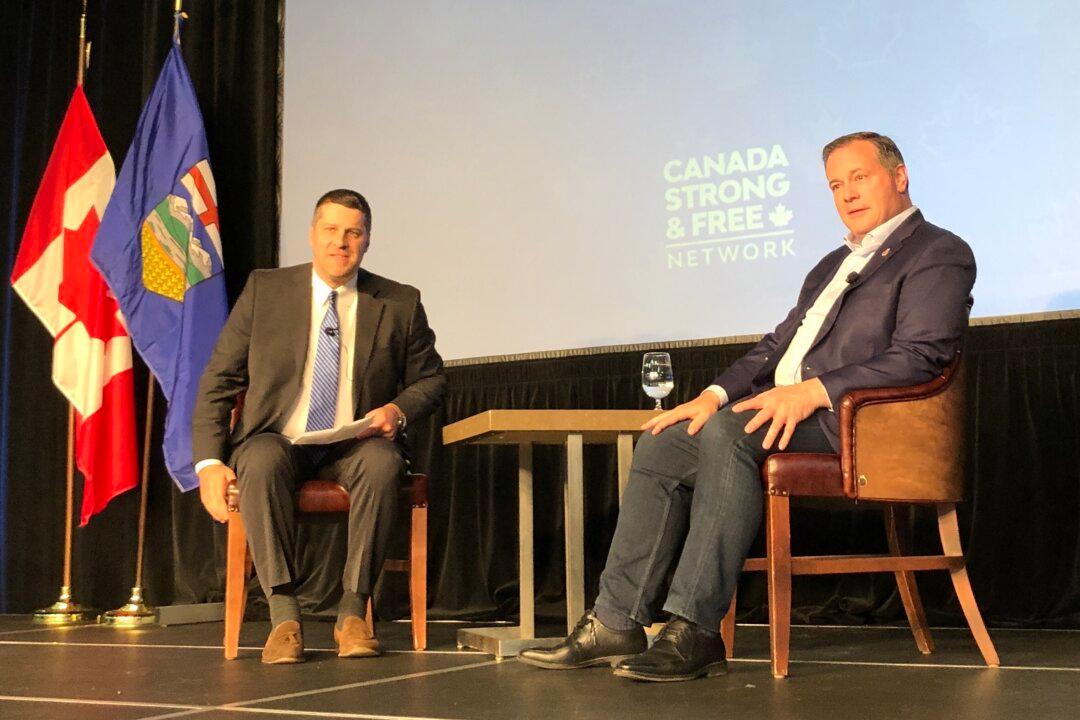RED DEER, Alberta—In one of his last public talks to conservatives as premier of Alberta, Jason Kenney defended his government’s record, saying he fulfilled the vast majority of his platform promises.
“We have implemented completely or substantially 90 percent of those 367 platform commitments,” Kenney said at the Canada Strong and Free Networking Conference in Red Deer on Sept. 24.





